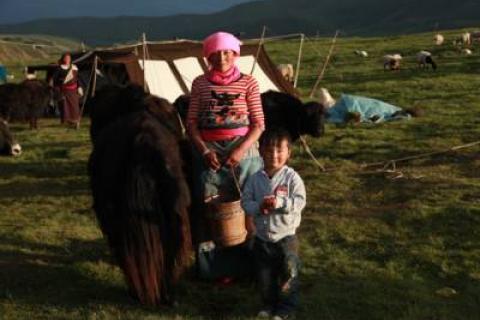Gender guidelines to be distributed in all 330 districts of Mongolia
Pilot study supports national roll-out of participatory land use planning
Sound, sustainable land management is critical to the long-term viability of Mongolia’s traditional herding way of life. And careful planning at local level, in a participatory and gender-inclusive way, is needed to underpin that.


